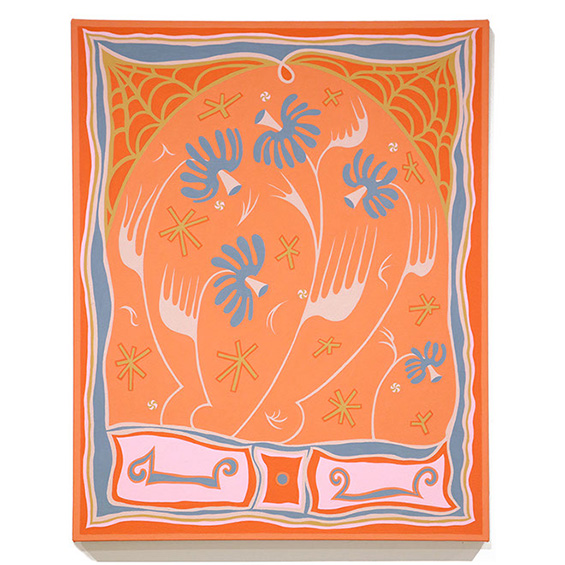Amie Cunat
Adjunct Instructor
Amie Cunat (b. 1986, McHenry, IL) uses painting and sculptural installation to confront familiarity by exaggerating or omitting characteristics from an observed source. Influenced by depictions of nature from early American painting, Shaker gift drawings, Japanese textile patterns, Art Deco, sci-fi and horror movies, Cunat's recent paintings include imagery of plant life that appear loud and flamboyant at the onset. Their exclamatory presence is prolonged through charged hue and abstracted form. Cunat received her MFA from Cornell University, Post-Baccalaureate in Painting and Drawing from The School of the Art Institute of Chicago, and her BA in Visual Arts and Art History from Fordham University. She has exhibited at Peep Project (PA), Shaker Museum | Mount Lebanon, Victori +Mo, Knockdown Center, Sunroom Project Space at Wave Hill, ArtYard (NJ), DC Moore Gallery, and Crush Curatorial among others. In 2019, she was awarded a Regional Economic Development Council Grant by NYSCA in collaboration with Shaker Museum | Mount Lebanon. Her work has been reviewed and featured by The New York Times, ARTnews, Artsy, Artnet News, Title Magazine, Vogue Italia, ArtMaze Mag, and Two Coats of Paint.





